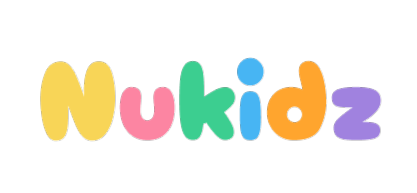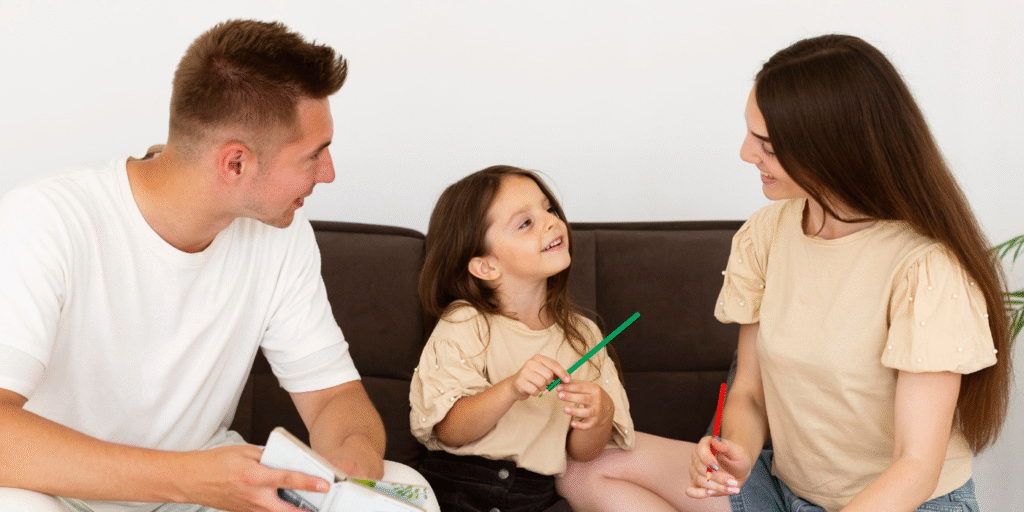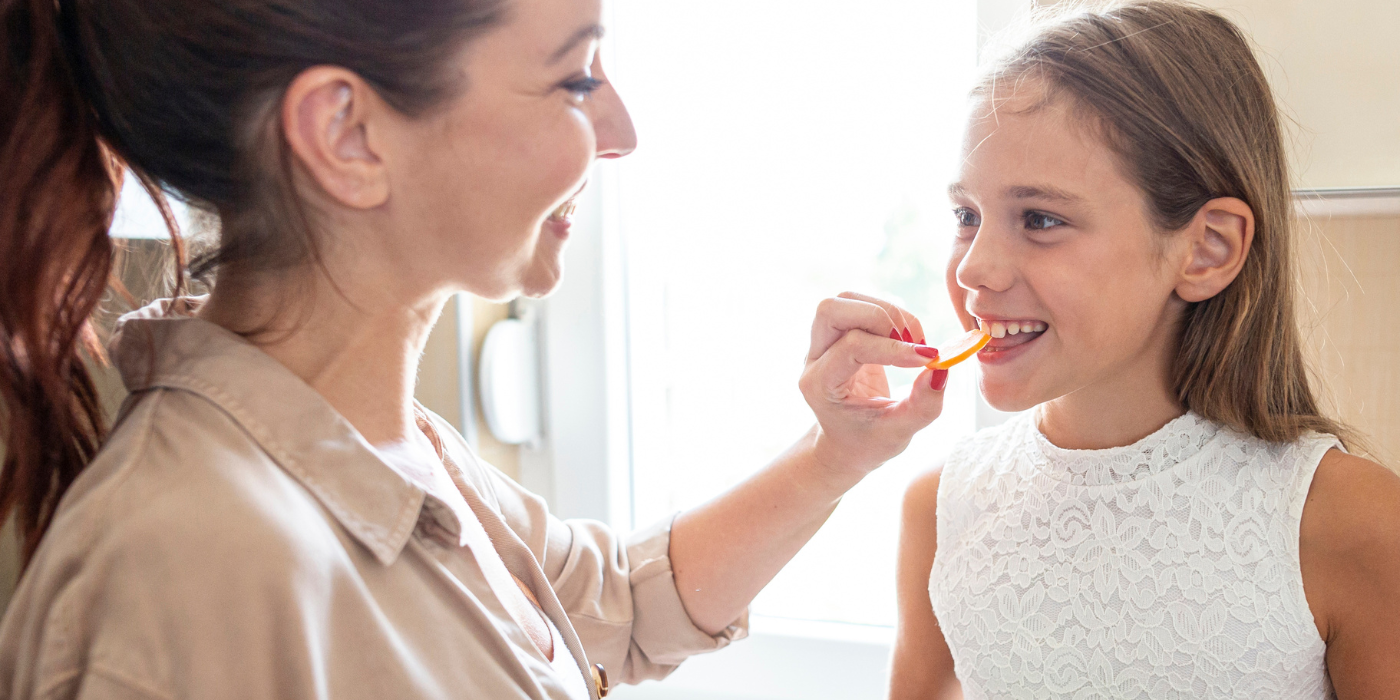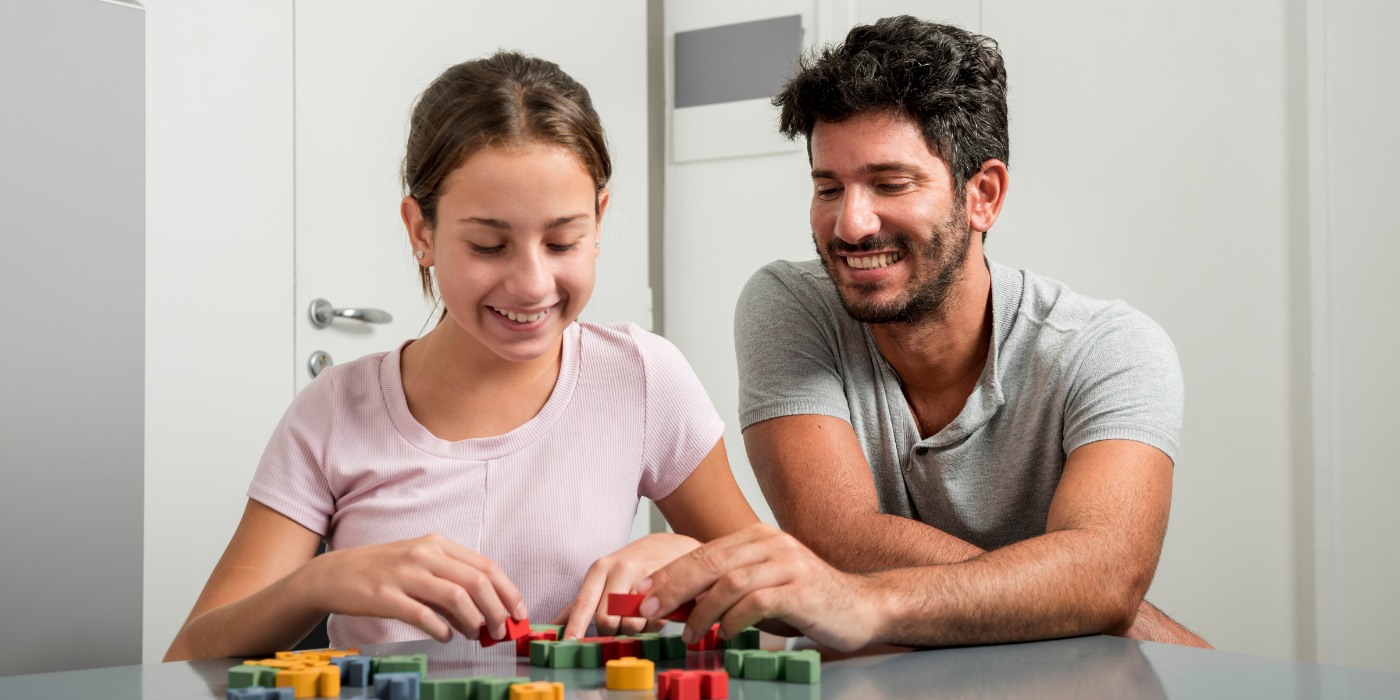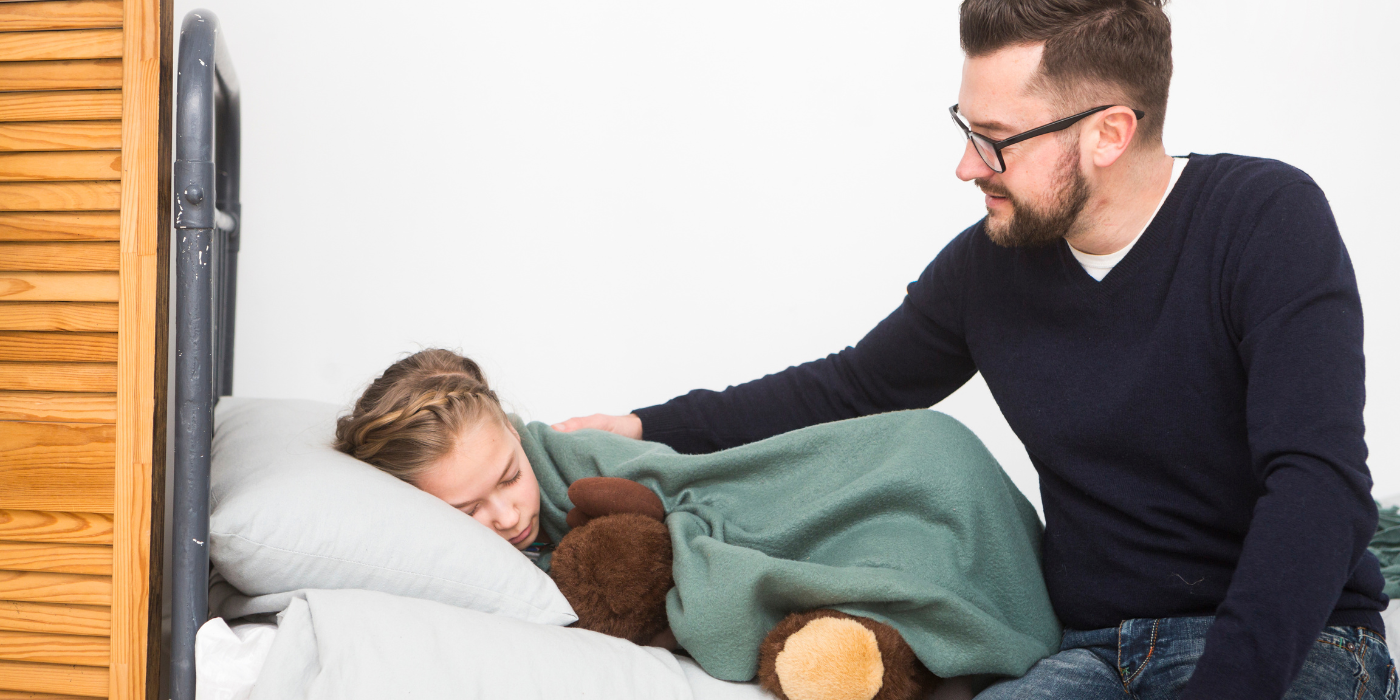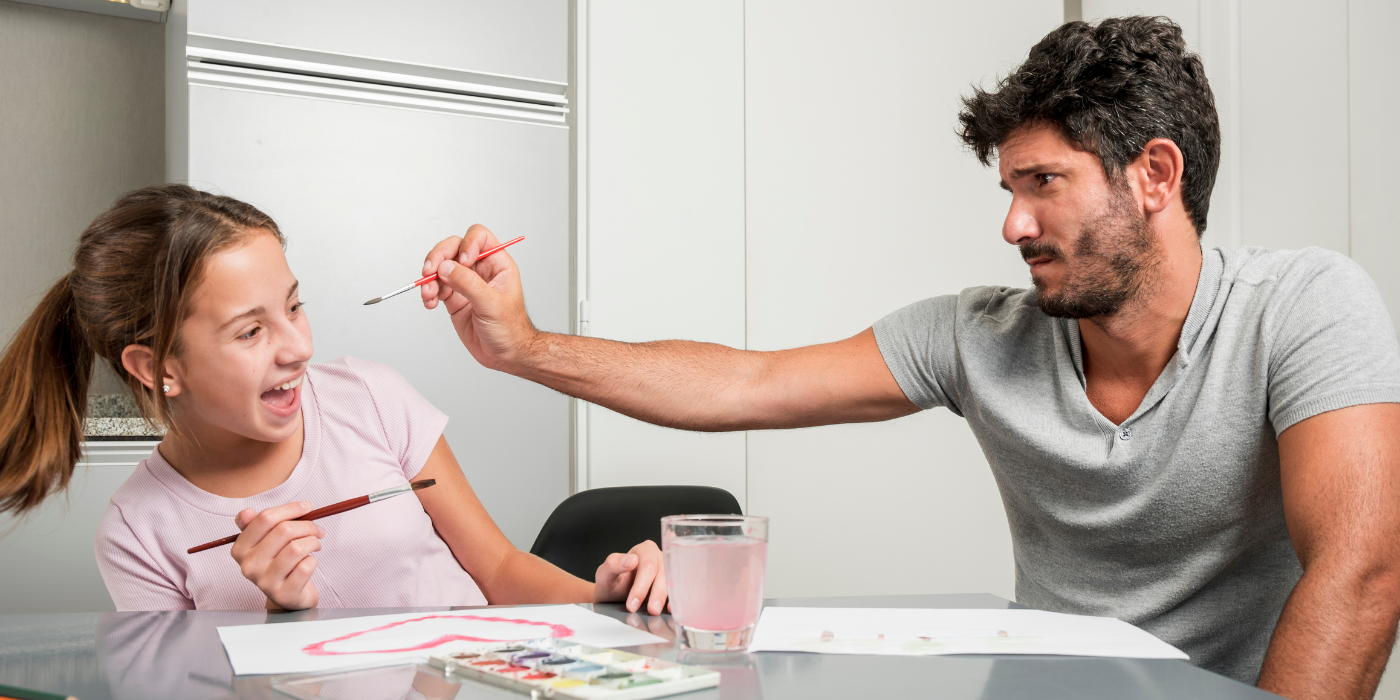P
Welcome, wonderful parents! Embarking on the incredible journey of raising a child is both a joyous and challenging adventure. Here, we celebrate the magic of parenthood and provide guidance through the exciting stages of your child’s early development. Let’s navigate this journey together, sharing insights, tips, and lots of love. Your dedication to nurturing your child’s healthy growth is truly commendable, and we’re here to support you every step of the way.
I. Introduction
A. Why Early Childhood Development is So Important
1. Setting the Stage for Success
- Think of early childhood as the starting point for your child’s journey. It is like laying the foundation for a successful and happy life.
2. Building a Strong Brain Foundation
- Early childhood is when your child’s brain grows fast. It is like building a super-smart brain foundation that helps them learn and do well in the future.
B. Your Important Role as a Parent
1. You Are the First Teacher
- Parents play a special role in teaching their children about the world. Even before school starts, you are the first and most important teacher.
2. Creating a Safe and Loving Environment
- Imagine your home as a cozy nest where your child can grow and learn. Creating a safe and loving environment is like giving them the best nest possible.
II. The Foundation: Infancy (0-12 months)
A. Physical Development
1. Motor Skills
- This is about your baby learning to move their body. In the beginning, it is things like waving arms and kicking legs. As they grow, they will start crawling and eventually take those first steps.
Activity: Tummy Time Play – Place your baby on their tummy for short periods each day. Surround them with colourful toys to encourage reaching and stretching. This helps build strength for crawling and later activities.
2. Sensory Development
- Think of this as your baby’s super senses developing. They are discovering the world through touch, taste, smell, sight, and sound. Everything is new and fascinating!
Activity: Sensory Bin Exploration – Create a simple sensory bin with safe objects of different textures. Let your baby touch and explore items like soft fabrics, smooth toys, or even a little water (supervised, of course).
B. Cognitive Development
1. Language Acquisition
- Your baby is like a little sponge soaking up sounds and words. They are learning the language around them, even if they cannot talk yet. You will notice adorable babbling and cooing.
Activity: Storytime Serenade – Read or sing to your baby. They love the sound of your voice, and it helps them tune into language patterns. Choose colourful and soft books for them to look at during your storytelling sessions.
2. Object Permanence
- Imagine playing peek-a-boo. Your baby is figuring out that things still exist even when they cannot see them. It is a big step in understanding the world.
Activity: Peek-a-Boo Magic – Play peek-a-boo with a soft cloth or your hands. Your baby will delight in the surprise when you reappear. This game helps them understand that things still exist even when they cannot see them.
C. Emotional and Social Development
1. Attachment and Bonding
- This is the special connection between you and your baby. They learn that you are there for them, creating a strong bond. It is like building a heartwarming friendship from the very beginning.
Activity: Cuddle and Chat Time – Spend quality time cuddling and talking to your baby. Your soothing voice and close presence strengthen the emotional bond between you two.
2. Social Interaction
- As your baby becomes more aware, they start interacting with others. Smiles, giggles, and maybe a few tears – it is all part of learning how to express and share emotions with the people around them.
Activity: Mirror Mimicry – Use a baby-safe mirror during playtime. Babies are fascinated by their own reflection. Make faces, smile, and watch them mimic your expressions, fostering early social interaction.
III. Toddlerhood (1-3 years)
A. Physical Development
1. Gross Motor Skills
- Gross motor skills involve the big movements that your toddler makes with their arms, legs, and whole body. This includes activities like running, jumping, and climbing. These actions help them become stronger and better coordinated.
Activity: Obstacle Course Adventure – Set up a simple obstacle course using pillows, cushions, and toys. Encourage your toddler to crawl under, jump over, and navigate through the course. This boosts their gross motor skills in a playful way.
2. Fine Motor Skills
- Fine motor skills refer to the small movements of the hands and fingers. Activities that involve picking up small objects, drawing, or stacking blocks help your toddler develop control over these tiny muscles.
Activity: Colourful Bead Stringing – Provide your toddler with large, colourful beads and a shoelace. Let them string the beads onto the lace. This fun activity enhances their fine motor skills while creating a beautiful, toddler-made accessory.
B. Cognitive Development
1. Language Explosion
- Language explosion is the exciting phase when your toddler’s vocabulary grows rapidly. They start using and understanding more words, expressing themselves in new ways.
Activity: Storytime Extravaganza – Read simple and colourful picture books to your toddler. Encourage them to point at pictures, repeat words, or even make up their own stories. This fosters a love for language and storytelling.
2. Curiosity and Exploration
- Toddlers are naturally curious about the world around them. Curiosity and exploration involve discovering new things, asking questions, and investigating their surroundings.
Activity: Nature Hunt – Take your toddler on a nature walk. Point out different plants, flowers, and bugs. Let them touch leaves and explore. This hands-on experience satisfies their curiosity about the environment.
C. Emotional and Social Development
1. Independence and Autonomy
- Independence and autonomy refer to your toddler’s desire to do things on their own. It is about letting them take small steps towards self-reliance.
Activity: Little Helper Tasks – Give your toddler simple tasks like putting toys in a basket or choosing a snack. This empowers them to feel more independent and capable.
2. Socialization with Peers
- Socialization with peers is about your toddler interacting and playing with other children. It helps them learn important social skills.
Activity: Playdate Picnic – Arrange playdates with other toddlers. Create a simple picnic with snacks and toys. This encourages your toddler to share, take turns, and enjoy the company of friends.
IV. Preschool Years (3-6 years)
A. Physical Development
1. Coordination and Balance
- Coordination and balance involve your preschooler learning to control their body movements. It is like getting the hang of walking, jumping, and even riding a tricycle. These activities help them become more stable and coordinated.
Activity: Balance Beam Fun – Create a makeshift balance beam using a straight line on the floor. Encourage your preschooler to walk along the line, pretending it is a narrow path. This helps improve their coordination and balance in a playful way.
2. Growth Patterns
- Growth patterns refer to how your preschooler is physically growing. It is like tracking how they are getting taller and stronger over time.
Activity: Height Chart Adventure – Create a height chart on a wall and mark your preschooler’s height regularly. Let them decorate the chart. This not only tracks their growth but also makes it a fun and visual experience.
B. Cognitive Development
1. Pre-literacy and Numeracy
- Pre-literacy and numeracy are the building blocks for reading and math. Your preschooler starts recognizing letters, numbers, and the joy of storytelling.
Activity: Alphabet Treasure Hunt – Hide letters around the house and have your preschooler find them. As they discover each letter, say its name together. This activity introduces them to letters in an engaging way.
2. Problem-Solving Skills
- Problem-solving skills involve your preschooler figuring things out on their own. It is like solving puzzles, finding solutions, and thinking through challenges.
Activity: Puzzle Playtime – Introduce age-appropriate puzzles. Encourage your preschooler to put the pieces together. As they solve puzzles, they are honing their problem-solving skills.
C. Emotional and Social Development
1. Empathy and Compassion
- Empathy and compassion mean understanding and caring about how others feel. It is like being a good friend and showing kindness.
Activity: Feeling Faces Game – Use pictures or drawings of different facial expressions. Discuss what each expression might mean and how it relates to feelings. This helps your preschooler develop empathy by recognizing emotions.
2. Developing Friendships
- Developing friendships is about your preschooler learning how to be a good friend and enjoy the company of others.
Activity: Friendship Bracelet Craft – Create simple bracelets with your preschooler. Talk about how each bead represents a friend, and the bracelet is a symbol of their growing friendships.
V. School Age (6-12 years)
A. Physical Development
1. Growth Spurts
- Growth spurts are periods when your child grows taller quickly. It is like a growth spurt is giving them a boost, and suddenly they need new clothes because the old ones are too small.
Activity: Height Chart Celebrations – Keep a height chart and mark the changes during growth spurts. Celebrate the milestones with a fun activity or a small treat to make it an exciting experience.
2. Physical Activity and Health
- Physical activity is all about moving and exercising, which is important for staying healthy and strong.
Activity: Family Fitness Challenge – Create a family fitness challenge with activities like a short family walk, dance session, or simple exercises. This encourages physical activity while bonding as a family.
B. Cognitive Development
1. Academic Milestones
- Academic milestones are achievements in school, like learning to read or solving math problems. It is like your child is reaching important goals in their learning journey.
Activity: Homework Heroes – Acknowledge and celebrate small academic achievements. Create a “Homework Heroes” chart, where you can add stickers or stars for completed assignments or good grades.
2. Critical Thinking Skills
- Critical thinking is about solving problems and making decisions. It is like being a detective and figuring out the best solution to a puzzle.
Activity: Mystery Box Challenge – Place random objects in a box. Have your child guess what is inside using clues or by feeling the objects without looking. This fosters critical thinking skills in a playful way.
C. Emotional and Social Development
1. Peer Relationships
- Peer relationships involve friendships and interactions with other kids. It is like building a team of friends who play and support each other.
Activity: Friendship Collage – Create a collage with pictures of friends and fun memories. Discuss the importance of friendship and encourage your child to express what makes their friends special.
2. Identity and Self-Esteem
- Identity and self-esteem are about knowing who you are and feeling good about yourself. It is like having a strong and positive picture of who you are.
Activity: Strengths and Talents Celebration – Encourage your child to make a list of their strengths and talents. Celebrate these qualities to boost their self-esteem and help them understand their unique identity.
VI. Preparing for Adolescence
A. Physical Changes
1. Puberty and Hormonal Changes
- Puberty is a time when the body goes through changes, like growing taller, developing curves, and experiencing hormonal shifts. It is like the body’s way of getting ready for adulthood.
Advice: Open Conversations – Keep open communication about these changes. Explain that it is a normal part of growing up, and everyone goes through it. Answer questions and address concerns to ease any worries.
2. Nutrition and Health
- Nutrition is about eating foods that provide the energy and nutrients needed for a healthy body. It is like giving your body the right fuel to function well.
Advice: Balanced Plate – Teach the importance of a balanced diet with fruits, vegetables, proteins, and whole grains. Encourage healthy eating habits and involve your teen in meal planning to make it a collaborative effort.
B. Cognitive Development
1. Abstract Thinking
- Abstract thinking involves understanding complex ideas and concepts, like thinking about the future or understanding different perspectives. It is like moving from concrete to more abstract thoughts.
Advice: Discuss Future Plans – Engage in discussions about the future, career goals, and personal interests. Encourage your teen to think about their aspirations, helping them develop abstract thinking skills.
2. Decision-Making Skills
- Decision-making skills involve making choices and thinking about the potential outcomes. It is like learning to weigh the pros and cons before making a decision.
Advice: Scenario Analysis – Help your teen practice decision-making by presenting hypothetical scenarios. Discuss possible outcomes and encourage them to consider different factors when making choices.
C. Emotional and Social Development
1. Independence and Responsibility
- Independence is about gaining more control over one’s life, and responsibility is about being accountable for actions. It is like taking steps toward adulthood.
Advice: Gradual Independence – Gradually give your teen more responsibilities, such as managing their schedule or chores. This helps them build independence while understanding the importance of responsibility.
2. Communication and Conflict Resolution
- Communication involves expressing thoughts and feelings, and conflict resolution is finding solutions to disagreements. It is like developing the skills to navigate relationships positively.
Advice: Active Listening – Teach active listening skills and encourage open communication. Provide guidance on resolving conflicts calmly and finding compromises to strengthen their communication abilities.
VII. Conclusion
A. Recap of Key Developmental Stages
- Let’s take a quick look back at the important stages your child has gone through – from the adorable baby days to the energetic toddler years and the school adventures. Each stage is like a chapter in their growing-up story.
- Celebrating Milestones – Celebrate the small and big achievements during each stage. From first steps to first friends, these milestones are moments to cherish and remember.
B. The Ongoing Role of Parents in Supporting Growth
- As your child grows, your role as a parent continues to be crucial. It is like being the guide in their journey, providing support, encouragement, and a comforting presence.
- Being the Constant Support – Emphasize the importance of being there for your child, listening to their thoughts and concerns, and being a consistent source of love and guidance. Your role evolves, but your support remains constant.
Happy Parenting: Building Bonds, Fostering Growth, Embracing Every Chapter!
